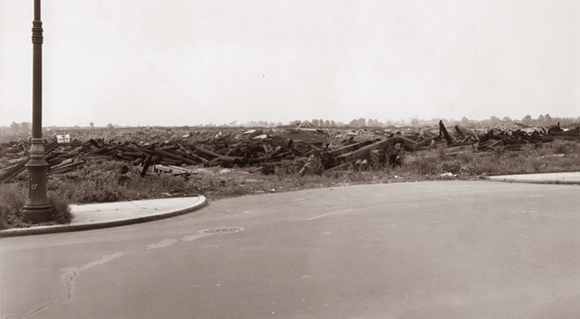Editor’s Note: The following letter is a fine, concise history of old Juniper Swamp in Middle Village published in 1976.
Dear Sir:
More than 60 years ago there was a great swamp south of Caldwell Avenue extending to Juniper Valley Road from 69th Street to Dry Harbor Road. This swamp also had a big pond. We called this the Mile Pond. It consisted of three ponds starting at about 75 Street and Caldwell and wound its way close to Dry Harbor Road.
In the fall and winter this swamp supplied us with wood to supplement our winter fuel supply. In the summer there were birds, squirrels, rabbits, catfish, frogs, turtles and muskrats; also an abundance of berries to be picked. We went hunting with beanshooters; never got any big game. We got soaking wet sometimes; also got lost in this wilderness.
Before WWI this swamp was drained by the New York, New Haven and Hartford Railroad to permit them to lay their tracks through this area from Bay Ridge to New England via the Hellgate Bridge. It was a big project, and they had many problems; this was the first thoroughfare to penetrate this area. Later property was acquired from Mt. Olivet and Lutheran Cemeteries to make way for Eliot Avenue to cut through.
The city used part of this swamp as a garbage dump and later as a dump for rock blasted out of the west side of Manhattan to build the Eighth Avenue subway. A large amount of peat is buried forever beneath this landfill.
A large hill north of Eliot Avenue between 70 and 73 Streets was leveled off and used as landfill. At one time this hill was often used as a gambler’s hangout, as it afforded a perfect lookout for the approach of law enforces. Arnold Rothstein built a row of houses on the southwest edge of this swamp, but they were condemned by the City and later torn down; never occupied.
Before WWII, the expansion of the Brooklyn Navy Yard took all of the Wallabout Market, and the debris from the demolished Wallabout was trucked out to this swamp as landfill. After WWII, temporary G.I. housing units were erected. Many of the tenants were reluctant to evacuate these premises.



